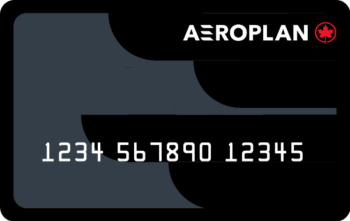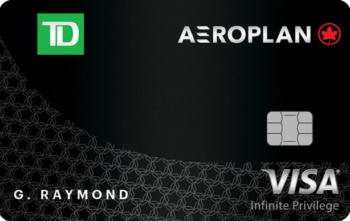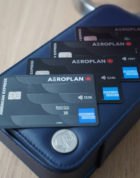During the Prince of Travel Signature Event in Montreal in April 2022, our team member Rohin suggested a team meetup in Munich for Oktoberfest. It seemed like a very reasonable idea at the time, and we soon booked flights and penciled in the dates in our calendars.
As it turns out, Josh, Rohin, and I met up for a couple of days closer to the beginning of the annual festival. The city was alive with festive spirit, and I felt a bit out of place wearing pants that weren’t made of leather.
We had a great time adding another destination in the world for the team to gather. It’s safe to say that we’d all surely do it again, especially knowing what to expect and what the experience is all about.
If you’ve got your eyes on Oktoberfest, here are 10 tips to keep in mind for planning, attending, and surviving Oktoberfest relatively unscathed.
In This Post
- 1. About the Festival
- 2. German Beer Law
- 3. Bring Your Wallet (And Cash)
- 4. A Day in the Life (Buckle Up)
- 5. Pace Yourself
- 6. Use Public Transit (Not E-Scooters)
- 7. Where to Stay
- 8. Gingerbread Hearts
- 9. Stay Nourished
- 10. Dress the Part
- Conclusion
1. About the Festival
Oktoberfest, also known as Wiesn, is the world’s largest beer festival. It has been held almost every year since 1810, with a few exceptions.
The original celebration marked the marriage of then-Prince Ludwig to Princess Therese of Saxe-Hildburghausen on October 12, 1810. Citizens of Munich were invited to attend the celebrations.

The grounds on which the festivities were held became known as Theresienwiese as a tribute to the bride. Since then, it’s been the name of the exhibition grounds, and later on, the name of the nearest metro station.
Over the years, Oktoberfest has grown into a massive annual celebration. Somewhere around six million people attend each year, with around seven million litres of beer consumed over the course of the festival.
Horse racing used to be a big part of Oktoberfest, but that has since given way to a carnival and rides. If you plan on trying out some of the rides, it’s probably in your best interest to do so before you venture into the beer tents.

Oktoberfest occurs over around 17 days from mid-September to early October each year.
2. German Beer Law
German beer is renowned worldwide for being subject to a purity law, Reinheitsgebot, which is commonly known as the Beer Purity Law. The law restricts the ingredients that can be used to make beer, and since 1516, only water, hops, and barley malt may be officially used to make beer.
Of course, yeast is a very important component in the beer brewing process, as it’s what results in alcohol. It wasn’t mentioned in the law, but it’s difficult to make beer without it.
I’ve dabbled in brewing in beer at home for quite some time now, and I can fully appreciate how it’s very much an art form. As someone who typically leans towards beers with a hoppier, more bitter taste, there’s something to be said about a crisp German beer.
There are a few styles of beer that are brewed specifically for Oktoberfest. In fact, if you’re lucky to enough to fly Lufthansa First Class during the festival, you’ll be able to enjoy special Oktoberfest beers both on board and at the First Class Terminal.

The style of beer served at Oktoberfest is Märzen, which translates to March (the month). Its history dates back to when brewers upped the alcohol percentage to 6% for beers brewed in March, which would help it to keep in cellars over the summer months.
Only six breweries (Augustiner, Hacker-Pschorr, Hofbräuhaus, Löwenbräu, Paulaner, and Spaten) are allowed to put Oktoberfestbier on their labels and deliver to the Oktoberfest tents. This is protected by trademark law, but if you find beers with “festbier” on the label, you’ll essentially be drinking the same thing.
This all goes to show that Germans take beer very seriously. In fact, in some of the local beerhalls, you’ll notice that people have their favourite steins under lock and key for easy access whenever they pop in for a cold one.

3. Bring Your Wallet (And Cash)
Part of the pleasure of attending Oktoberfest is parting ways with stacks of euros. It’s not the cheapest place to get a beer in Munich, but you’re paying for the atmosphere.
In the tents, expect to pay €13.50 ($18 CAD) for a litre of beer. Should you wish to have staff check in on you every now and then, you may want to round that up to €15 ($20 CAD).
The staff attending tables are very busy, so if you’re not quick to ask for change or a specific amount back, it’ll be gone before you know it. What you thought would be a €13.50 beer can very easily turn into a €20 beer if you’re not careful.

You may be thinking that this could be a great way to earn some credit card points, but unfortunately, you’re only able to pay with cash. So, leave your credit cards locked up in your hotel room, and come equipped with a pile of cash and your debit card.
There are ATMs in the tents and throughout the Oktoberfest grounds, so getting some cash won’t be hard to do.
You’ll want to budget for some food, too, but you also may want to grab something to eat before heading to the grounds. If you want to stay hydrated, a pint of tap water will set you back €5 ($7 CAD).
You can’t bring bottles of water into the tents, either, as there are staff checking bags at the doors. Best to come hydrated and leave before you’re too dehydrated.
4. A Day in the Life (Buckle Up)
If you’ve made a reservation, you can avoid showing up earlier on in the day to snag a good table. Reservations open up earlier in the year, typically between January and April, and you can contact the tent you’d like to reserve a table in by email, phone, or fax.
Keep in mind that you have to pay to reserve an entire table, so you’ll want to be sure you can fill it up to keep the costs as low as possible. Reserving a table isn’t necessary, though, and you can show up and look for empty spots.
As the day progresses, tents fill up and good seats become harder to find. If you want to be in the heart of the action, show up early and pace yourself throughout the day.

The tents have live bands that play music throughout the day and into the night. During the day, the atmosphere is jovial, but much more subdued compared to the evening.
Indeed, most people will be sitting and chatting during the afternoon, and the band will play a mix of German songs and some popular hits that many people know.
As the day turns into evening, the tent is full of people standing on benches, and not many people are left sitting down. Just be sure to stand on the benches instead of the table, as doing the latter will get you escorted out of the tent.

You may want to warm up your vocal folds, too, as the band plays hit after hit after hit, to which people enthusiastically sing along. Don’t be surprised if you find yourself with your arms around strangers’ shoulders, belting out tunes at the top of your lungs.
You may notice a song that gets played over and over again. This is basically a song after which everybody raises their steins for a tent-wide cheers.
If you don’t speak German, don’t worry. You’ll invent your own words to the song by the end of the night.

5. Pace Yourself
Surely, your first sips of beer at Oktoberfest will go down smoothly. Along with the atmosphere, it’s fun to drink out of gigantic beer steins, soaking up equal amounts of festive atmosphere and delicious beer.
Just be mindful of how many litres you’ve put down the hatch. Our table was full of mostly responsible adults, but we were seated close to many people whose downward trajectory was very fast.
Some folks will stand up on a bench with a full litre of beer and attempt to guzzle down the entire stein in one go. Cheers of encouragement come from all around the tent, and you’re either met with a loud cheer if you succeed or a chorus of boos if you don’t.

You’ll also notice that there are non-alcoholic beers on the menu for the same price as a regular beer. If you’re still thirsty, but maybe ready for a break, it’s good to know that there’s an option available that won’t make things any worse than they already might be.
Similarly, you likely don’t need to spend multiple days in a row in the tents. Munich is full of nice places to relax and rejuvenate yourself, and there’s plenty of green space available for lifting up your spirits.
Consider spending the day at the English Garden to lift up your spirits if you had a few too many sips the night before. Or, stroll around the Old Town for some lovely Bavarian architecture.
6. Use Public Transit (Not E-Scooters)
Munich is very easy to get around by transit. If you’re in a bit of a state after your visit to the Oktoberfest tents, hopefully you can still manage to head back to the metro station to get back to your lodgings safely.
If you don’t have a day pass, the ticket machines will help you find the fare you need by entering your destination. In the centre of the city, multiple lines stop at the same stations, so if you’ve missed your stop, you might be able to transfer at the next one without any issues.

It may be tempting to hop on an e-scooter to get back, but it’s not a good idea. Not only are you putting yourself and others at risk, but you’re also subject to the same consequences as if you were driving a car under the influence.
Transit is definitely the way to go here, and you’ll be back in the comfort of your hotel room before you know it.
7. Where to Stay
Unsurprisingly, hotel stays can be very expensive during Oktoberfest. Hotels know that they can charge a premium around this time, due to the large number of revellers who make their way to Munich over the course of the festival.
This is where booking a room with points may be a very valuable move, and you might wind up getting an excellent cents per point value. When looking for hotels, consider both the location and how much time you’ll be spending on the premises.
In my case, I knew that I’d be spending the majority of my time either in the Old Town or at Oktoberfest, so I wasn’t really concerned about a particularly luxurious stay.
I wound up staying at the Moxy Munich Ostbahnhof, for which I paid 20,000 Marriott Bonvoy points per night. Considering that the cash rate for the same hotel was around €320 ($433 CAD), I wound up getting outstanding value when compared to our points valuations.
Josh booked a room at the Four Points by Sheraton Arabellapark, for 30,000 Bonvoy points per night. At the time of booking, this was good for about 1 cent per point.
Regardless, I wouldn’t put too much stock in the exact valuation here. Cash rates are likely to fluctuate dramatically around event times, and the value of the experience is priceless.
There are many options available for booking hotels on points, so just be sure to book well in advance to secure a decent room at a decent price. If you have to pay cash, split the cost with friends to make it slightly more affordable.
8. Gingerbread Hearts
Everywhere you go in Munich, you’ll notice gingerbread hearts either for sale or as decorations. While you’ll also find them around the Christmas holidays, they’re a very popular item for Oktoberfest.
Gingerbread hearts are actually a newer tradition at Oktoberfest, having been popularized by master confectioner Gustav Tschernich around 40 years ago. The hearts are adorned in icing sugar instead of a messier chocolate coating, and have short messages on them.

You can pick one up in most places around the city, and you can also have customized messages created. It makes for a nice souvenir for a loved one back at home, or as a tasty snack when you’re in need of a bit of sugar.
9. Stay Nourished
While beer will quench your thirst, you’ll also need to nourish your body. During Oktoberfest, you can enjoy some lovely Bavarian cuisine throughout the city or in the beer tents on the festival grounds.
If you like sausages, you’ve come to the right place. There’s not much else that’s as satisfying a cold beer and a hot sausage with all of the trimmings, and during Oktoberfest, you won’t have a difficult time finding this combination.

Restaurants in the beer tents and the beer halls crank out roasted chickens, plates of sausages with mashed potatoes and sauerkraut, and pretzels with impressive efficiency. Keep an eye out for some of the conveyor belts that get hot food from the kitchen to your table – it’s quite remarkable.

Before heading into the beer tents, consider loading up on a big meal away from the Oktoberfest grounds to save some cash. There are also plenty of options outside of the tents on the festival grounds, where you can get some food, stretch your legs, and contemplate your next move.
10. Dress the Part
As you move around the city and the festival grounds, you’ll notice many men wearing lederhosen and women wearing dirndls. These are traditional Bavarian outfits, and they’re very much a part of the experience for locals and tourists alike.
For men, the outfit typically consists of deer leather shorts with suspenders, a button-up shirt, calf-high socks, an Alpine hat, and sturdy Bavarian shoes.
For women, the dirndl typically consists of an apron, a bodice, a blouse, and a skirt. The patterns and fabrics differ significantly, but the set-up of the outfit largely follows a similar design.

These outfits carry important historical significance, as they were traditional work outfits for peasants a long time ago. Eventually, upper-class Germans adopted wearing lederhosen for hunting, horseback riding, and other pursuits.
The dirndl had a similar trajectory from peasant work clothing to being adopted by a wider swathe of society. Whereas the dresses used to be made from rags, they’re now much more elaborate and made from finer materials, but follow the same historical design.
If you’d like to look the part, you can easily rent lederhosen and dirndls in many places throughout the city. Your hotel would be happy to assist in finding a rental place, or you can find many places online.
Expect to pay around €50 for the full get-up for a one-day rental, although prices may vary.
Conclusion
Oktoberfest is one of the most famous festivals in the world, and for good reason. If you’re up for toasting beers with thousands of strangers, you’re sure to have a great time.
Munich comes alive during the festival, and it’s interesting to take part in such an iconic celebration. Having now been once, I’d definitely consider going again, but I’m not in a particular rush to do so.
Costs for attending Oktoberfest can add up quickly, but you can mitigate this by planning in advance and knowing what to expect.




















